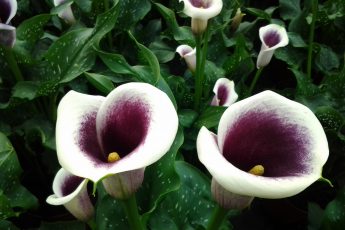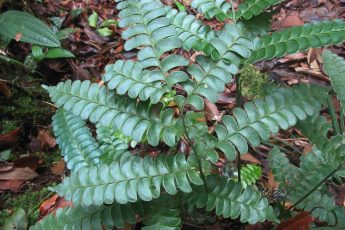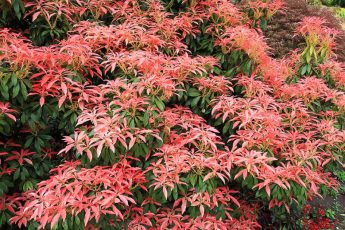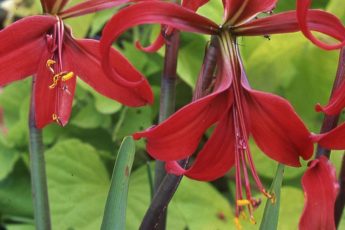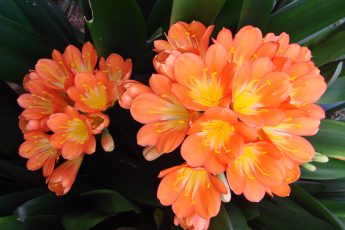Characteristics of Metrosideros
Metrosideros is celebrated for its adaptability and perennial nature. This plant can reach a height of 1.5-2 meters when cultivated indoors, making it a striking centerpiece for any room. However, its slow growth rate means patience is key for owners looking to see it reach these heights. While the plant is relatively easy to grow, it does come with medium difficulty due to its particular preferences in temperature, light, and soil conditions.
Optimal Growing Conditions
Temperature and Humidity
Metrosideros thrives in warm temperatures during summer, enjoying the ambiance of a well-ventilated room. In winter, it prefers a cooler environment, ideally between 41-50°F, which is crucial for promoting flowering. Unlike many tropical plants, Metrosideros does not demand high humidity and can tolerate dry air, though occasional misting every 2-3 days in summer can be beneficial.
Lighting
Proper lighting is pivotal for Metrosideros. It requires a sunny location with a few hours of direct sunlight each day. Insufficient light will hinder its ability to bloom, which usually occurs between April and May. The flowers, known for their red stamens and spicule inflorescences that resemble a dishwashing brush, are a delightful spectacle when they finally make their appearance.
Soil and Watering
The right soil composition is vital for Metrosideros’ health. A prepared, rich, weakly acidic soil mix or a homemade blend of 1 part sod land, 1 part coarse sand or perlite, 1 part moist peat or humus, and 1 part ground leaf is ideal. Equally important is ensuring good drainage and using a pot with a hole to prevent water stagnation. Metrosideros is drought-resistant, preferring the soil to dry slightly between waterings. In summer, water abundantly once a week with soft water, reducing to every 8-10 days in winter.
Feeding and Fertilizing
Fertilize Metrosideros from spring to autumn every two weeks using a complex fertilizer devoid of lime. Organic fertilizers also contribute to its health and vibrancy. Be cautious of over-fertilizing, which can lead to drying leaves and soil imbalance.
Propagation Techniques
Reproducing Metrosideros can be achieved through apical half-aged cuttings or seeds. Cuttings should be taken between August and March, selecting side shoots that are 5-8 cm long and treating them with rooting hormones before planting in a peat and sand mix. Seeds can be sown in March, placed on the surface of a substrate of peat and sand, and lightly covered with soil. Nurtured under diffuse light at a temperature of at least 69.8°F, seedlings will flower in 3-4 years.
Pruning and Care
To maintain its shape and promote healthy growth, Metrosideros may require occasional pruning if growth is rapid and unchecked. Young plants benefit from being repotted every spring, while mature plants need only a soil refresh. During summer, the plant can be moved to a garden setting to enjoy prolonged warmth and light.
Pest Management and Common Issues
Despite its resilience, Metrosideros is susceptible to pests such as mealybugs, scabs, aphids, thrips, and spider mites. Regular inspection and organic treatments can prevent infestations. Persistent moisture and over-fertilizing can also result in leaf drying, so careful monitoring of watering practices is vital.


